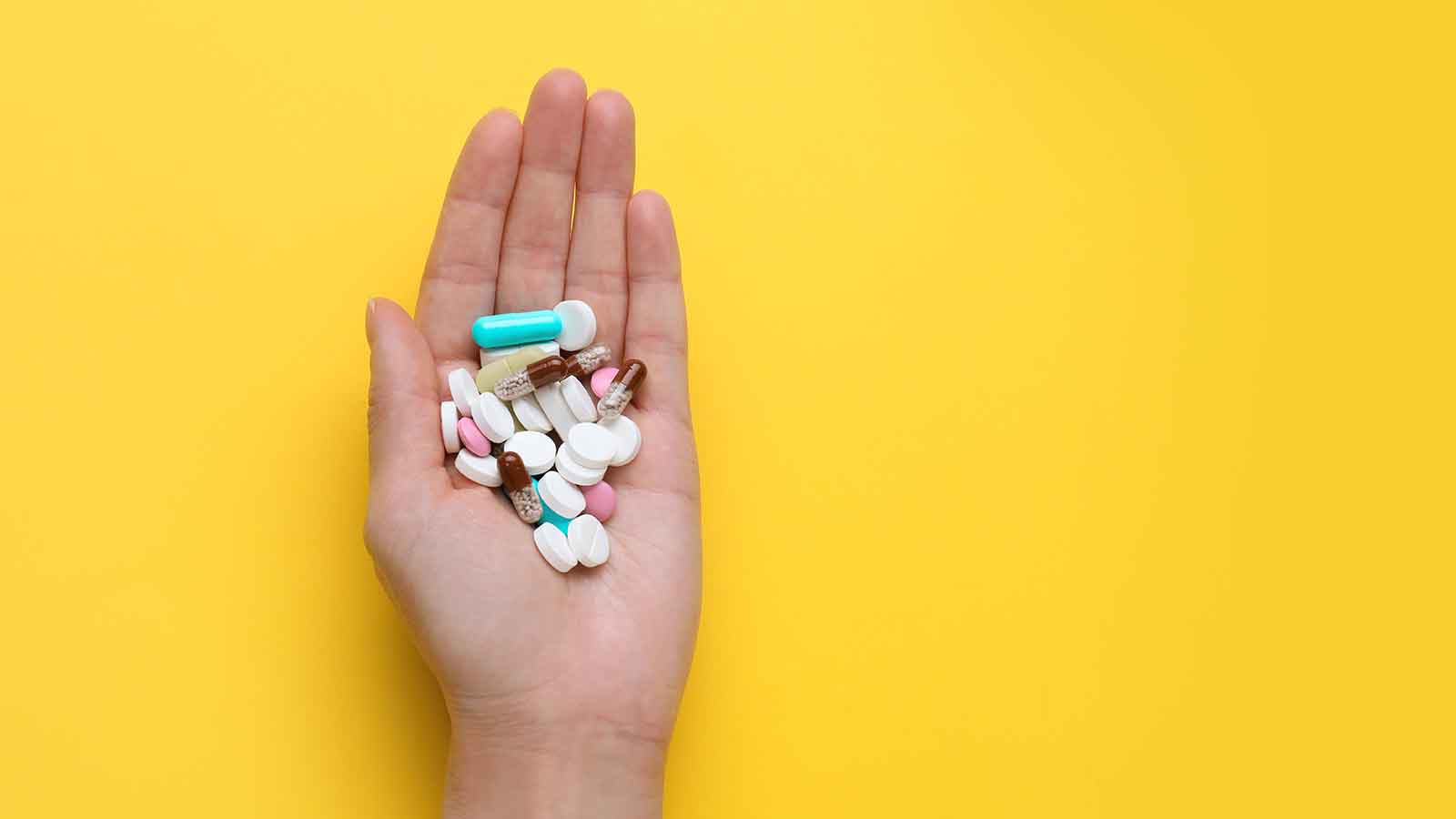It's a complex issue that affects millions of people worldwide, and it's important to understand the risks and warning signs associated with antidepressant addiction and abuse. In this article, we'll dive deeper into the topic and explore what antidepressant addiction and abuse look like, the potential dangers, and what you can do to seek from one of the top Thailand drug rehab centres if you or a loved one are struggling with addiction and underlying mental health disorders.
Addiction To Antidepressants
While these controlled substances are, for the most part, shown to be helpful in treating affective disorders and related conditions, there is wide concern regarding the increasingly common addiction, misuse, and antidepressant abuse of these sometimes quite potent drugs. So much so, in fact, that you would be forgiven for describing addiction to taking antidepressant medications as a serious global health concern, affecting the well-being and health of millions of people globally.
The notion of suffering with drug addiction to a medication that is prescribed by a doctor to treat depression can be confusing to many, therefore it is important that we differentiate between addiction and dependence to gain a better understanding of this issue - the two are often confused, and through this article, we aim to draw a distinction.
In short, antidepressant addiction is characterized by a psychological (or mental) compulsion to use the medication despite being aware of the negative consequences sometimes caused by antidepressant abuse. Dependence, on the other hand, refers to the physical reliance on the medication, leading to sometimes quite awful (and often dangerous) antidepressant medication withdrawal symptoms if discontinued abruptly.
Despite their beneficial effects, the risk of developing a dependency on antidepressants is concerning, not just to the team at Miracles Asia but to the global health community as a whole. Many individuals experience antidepressant withdrawal symptoms and cravings when they try to discontinue their medication by virtue of 'cold turkey,' which can lead to addiction and possible antidepressant abuse.
It is crucial to monitor the use of these medications closely and seek professional antidepressant treatment experiencing withdrawal symptoms.
Antidepressant Addiction Vs. Dependence

In contrast, addiction is a psychological compulsion to use the medication despite its negative consequences. Addiction to antidepressants can lead to harmful behavior, such as taking more than the prescribed amount or using the medication for non-medical reasons, including to achieve a sense of euphoria or to escape from emotional pain. This behavior can lead to a cycle of seemingly never-ending dependency and addiction, which can be extremely challenging to break, and sometimes leads to antidepressant abuse.
It is important not to be confused by those two states and to recognize the difference between dependence and addiction to antidepressants to ensure appropriate treatment. Treatment for dependence may involve slowly tapering off the medication to minimize antidepressant withdrawal symptoms (with varying success, depending on the medication), while treatment for addiction may require more intensive therapy and support to address the underlying psychological and emotional factors driving the addiction.
In layman's terms, addiction is mostly of the mind, while dependence is way more physical.
It is also important to note that dependence and addiction to antidepressant drugs can occur even when using these medications as prescribed. Therefore, it is critical to use these medications under medical supervision and to discuss any concerns or difficulties with your healthcare provider. With appropriate treatment and support, it is possible to overcome antidepressant dependence and addiction and achieve a healthier, more constructive, and ultimately happier life.
Are Antidepressants Addictive?
While the medical industry does not classify antidepressant drugs as 'addictive' as a literal definition (unlike opioids or benzodiazepines, for example), many individuals report experiencing withdrawal symptoms and cravings when discontinuing the medication, which can be similar to addiction.
Furthermore, there is an ongoing debate among the quite divided general public about whether antidepressant medications are even addictive in the first place. While some people feel that they are, others simply do not associate substance use disorder with them. However, it is essential to recognize that addiction is a complex issue that goes beyond just physical dependence. It involves psychological and emotional factors, including feelings of helplessness, loss of control, and negative self-image.
The concept of addiction to antidepressant medication raises questions about the risks and benefits of using these medications to treat affective disorders. While antidepressants can be effective in reducing symptoms of depression and anxiety, there is a risk of developing dependence and addiction, which can have negative consequences for mental health and overall well-being.
Double-Edged Sword?
It is crucial to monitor the use of antidepressants closely and to seek professional help if experiencing difficulties. Treatment for addiction may involve therapy, medication-assisted treatment, and support groups. At Miracles Asia, we offer a range of evidence-based therapies and holistic treatments to help individuals overcome addiction and achieve lasting recovery.
In conclusion, while the medical industry does not classify antidepressants as addictive substances, the risk of developing dependence and addiction cannot and should not be ignored. It is important to recognize the complex nature of addiction and to seek help if experiencing difficulties, and remember, many people do. With appropriate treatment and support, however, it is possible to overcome addiction to antidepressants and achieve a healthy, fulfilling life.
What Are Antidepressants?

There is no one size fits all approach to prescription medications like this, and with several different types of antidepressants available, each type presents unique mechanisms of action and potential side effects. The most common types of antidepressants include selective serotonin reuptake inhibitors (SSRIs), tricyclic antidepressants (TCAs), monoamine oxidase inhibitors (MAOIs), and serotonin-norepinephrine reuptake inhibitors (SNRIs). Other drugs are available, but these four 'types' are probably the most common.
Other medications include noradrenaline reuptake inhibitors and other antidepressants like specific serotonergic antidepressants.
SSRIs, in particular, have caused divided opinions in the medical community. While many people in both the professional and non-professional camp would class SSRIs as the ultimate solution for affective disorders, there are a huge number of people who insist they cause more harm than good, owing to the common issue of addiction and/or dependence.
Most commonly prescribed antidepressant medication
an SSRI that works by increasing levels of serotonin in the brain
another SSRI that is also used to treat obsessive-compulsive disorder (OCD) and post-traumatic stress disorder (PTSD)
an SSRI that is also used to treat social anxiety disorder and panic disorder
an SSRI that is also used to treat the premenstrual dysphoric disorder (PMDD)
an SSRI that is also used to treat generalized anxiety disorder (GAD)
a norepinephrine-dopamine reuptake inhibitor (NDRI) that is also used to help people quit smoking
a serotonin-norepinephrine reuptake inhibitor (SNRI) that is also used to treat generalized anxiety disorder
another SNRI that is also used to treat fibromyalgia and chronic neuropathic pain
an atypical antidepressant that is also used to treat insomnia and anxiety disorders
This, one might argue, is part of the problems with antidepressants (especially SSRIs). It takes months for the medication to work and more months to taper off the medication. For some people, it can take years of trial and error to find something that works for them.
Antidepressant Effects And Abuse
However, it is important to note that abusing antidepressants can have a range of negative effects on the body and mind. Taking too much of the medication or using it for non-medical purposes can lead to physical and psychological dependence, as well as a number of potential side effects.
Some of the most common unwanted antidepressant symptoms include:
Signs Of Antidepressant Overdose

Common Drug Combinations
Some of the symptoms and impairments of taking alcohol with antidepressants include:
Getting Help For Antidepressant Addiction And Abuse
At Miracles Asia, we provide comprehensive treatment for addiction and mental health disorders, including antidepressant addiction. Our experienced team of professionals can help you or your loved one overcome addiction and regain control of your life.
In Conclusion: There Is Hope
While antidepressants can be effective for mood disorders, they also come with a risk of addiction and abuse. It is important to use these medications as prescribed by a treatment provider and to seek help if you or someone you know is struggling with addiction or abuse. Remember, you are not alone, and Miracles Asia is ready to help.


